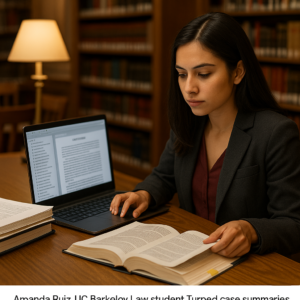
Selecting an international school in Singapore is a decision that influences not only the educational journey of your child but also their holistic development and overall experience. As a parent, it is critical to pose the appropriate questions during a school visit to assess whether the institution aligns with your child’s requirements.
Discover the key questions to ask when touring an international school, ensuring you know the ins and outs of your child’s potential academic partner.
Curriculum and Educational Philosophy
Understanding the curriculum and teaching philosophy is vital in assessing if a school’s approach aligns with your educational goals.
What curriculum is offered?
Ask about the school’s primary curriculum. International primary schools often offer popular programs like the International Baccalaureate (IB), British, or American curricula. Understanding what subjects are covered and how the curriculum progresses yearly is necessary.
What is the school’s teaching philosophy?
Know whether the school prioritises experiential learning, academic rigour, or holistic development. This question gives insights into how students are taught and assessed.
How does the school integrate cultural diversity into the curriculum?
An international school hosts students from various backgrounds. A robust curriculum will likely incorporate global awareness, cultural studies, and language diversity, allowing students to gain a broader worldview.
Student-Teacher Ratio and Class Sizes
Class size directly impacts the level of attention each child receives, so understanding the school’s student-teacher ratio is critical.
What is the average student-teacher ratio?
Schools with lower student-teacher ratios can typically offer more personalised instruction. Aim for a school where the ratio allows teachers to engage with students individually.
What is the maximum class size?
Larger class sizes might hinder individual attention and affect classroom dynamics. Ask about class sizes across different grade levels to ensure your child will receive adequate attention.
Teacher Qualifications and Professional Development
The quality of teachers largely determines the quality of education.
What qualifications do the teachers hold?
Inquire about the minimum qualification standards for teachers. Many international primary schools employ teachers with advanced degrees or specialised training in their subject areas.
How does the school support ongoing professional development for teachers?
Look for schools that invest in continuous professional development. Regular training programs and workshops indicate that teachers stay updated with educational trends and best practices.
Language Support and Multilingual Programs
Due to the multicultural environment of international primary schools, language support can play a significant role.
What language support is available for non-native English speakers?
Non-native English speakers might need additional help in adjusting to an English-speaking curriculum. Ask if the school provides English as an Additional Language (EAL) support or other assistance.
Does the school offer programs in additional languages?
Many international primary schools offer Mandarin, French, or other popular language classes. Find out which languages are taught and if advanced programs are available for fluent speakers.
Extracurricular Activities and Facilities
A well-rounded education goes beyond academics. Extracurricular activities allow children to explore interests and develop soft skills.
What extracurricular activities are available?
Ask about the variety of sports, arts, music, and cultural programs offered. Some schools have extensive extracurricular options, while others might focus on a limited range of activities.
What facilities are available for extracurriculars?
Facilities such as libraries, science labs, sports fields, and art studios can enhance students’ learning experience. Touring these facilities during the visit can provide insight into the school’s offerings.
ALSO READ: Choosing the Right International School for Your Child
Well-being and Support Services
Ensuring a child’s well-being is just as essential as academics.
How does the school support students’ mental and emotional well-being?
Ask about the availability of counsellors, mental health resources, and emotional support programs. A strong support system is necessary, especially for children adjusting to a new environment.
Are there special support services for students with learning difficulties?
Inclusive education policies help ensure that all students receive appropriate support. Ask about services like individualised education plans (IEPs), specialised staff, and resources for children with learning needs.
Parental Involvement and Communication
Transparent communication between the school and parents fosters a better learning environment.
How often does the school communicate with parents?
Regular updates, newsletters, and parent-teacher meetings keep parents involved. Ask how often the school provides feedback on student progress and upcoming events.
What is the school’s policy on parental involvement?
Some international primary schools encourage active parental involvement in school activities. Understand the school’s approach and find out if there are opportunities for parents to volunteer or join committees.
Tuition and Additional Costs
Cost is a critical factor when choosing an international school.
What are the tuition fees and additional costs?
Ask for a clear breakdown of tuition fees, including additional costs for extracurriculars, uniforms, and field trips. Some schools also charge one-time enrollment fees or building funds.
Are there scholarships or financial aid options?
Some international schools offer scholarships or financial aid. Knowing these options can help manage costs while ensuring your child receives a quality education.
School Community and Culture
The school environment plays a significant role in a child’s social development.
How does the school foster community among students and parents?
International schools often emphasise community to help families from diverse backgrounds feel included. Inquire about community-building events, student mentorship programs, and ways parents can connect.
What values does the school emphasise?
Values such as respect, empathy, and integrity often shape the school culture. Learning about these core values can help determine if they align with your family’s principles.
Conclusion
Choosing an appropriate international primary school in Singapore is an important decision requiring careful investigation and well-defined inquiries. You can thoroughly understand each institution by focusing on essential aspects such as the curriculum, class sizes, qualifications of teachers, language assistance, extracurricular activities, student welfare, and financial considerations.
Contact The Grange Institution to give your child an education that opens doors to a world of opportunities.



